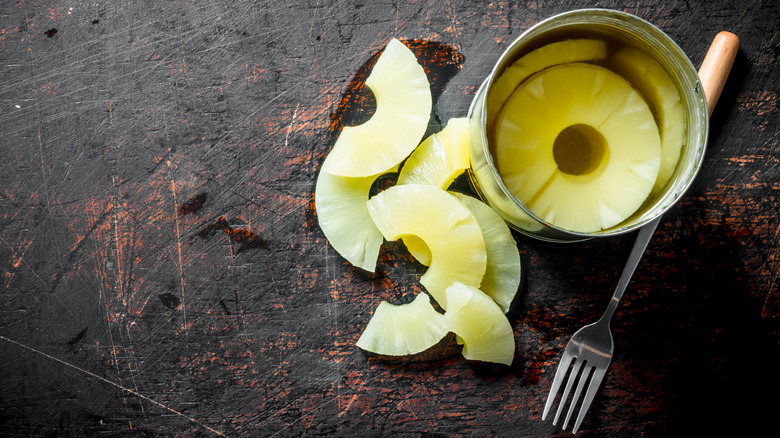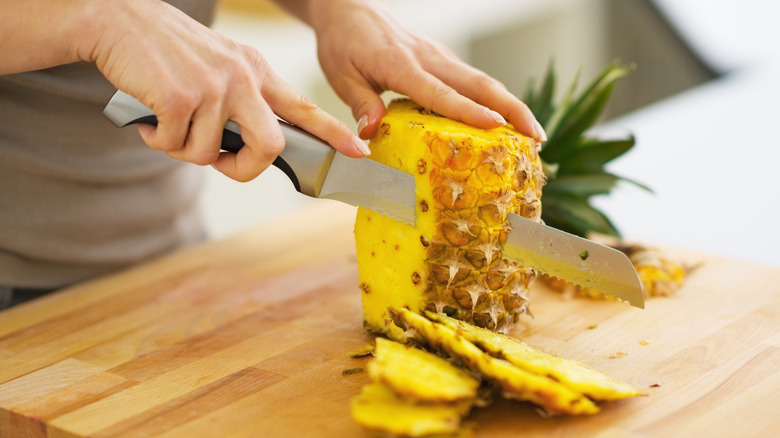Why Canning Pineapple Is A Good Way To Reduce Food Waste
According to YouGov America, pineapples are a favorite, considering it takes fifth place as a popular fruit in the United States. Large and golden, with big green palm leaves fanning from their heads, pineapples are synonymous with island living. Just closing your eyes and taking a bite into the fruit's sweet flesh, or, better yet, a sip of your cool and refreshing piña colada, sends your mind straight to a breezy beach. But pineapples aren't just a mental vacation; they also have some seriously impressive physical benefits.
With one cup of pineapple, Healthline claims that you can fulfill all of the manganese, a powerful antioxidant, and nearly all of the vitamin C values that your body needs in a day. Additionally, due to the fruit's high amount of antioxidants, a 2017 study published in the National Library of Medicine shows that pineapples can help minimize oxidative stress and inflammation in your body, which contribute to disease. This, combined with the fruit's vitamin C content, make pineapples major immunity boosters.
It's no wonder why people love pineapples so much — some even go as far as smelling the bottoms of them for their sweet aroma that indicates their flesh is ready to be eaten. So, whether your motives are health-related or environmental, you don't want to waste your pineapples — and the best way to avoid that is by canning them.
Canning pineapple allows you to use the entire fruit
Sure, if you wanted some canned pineapples, you could easily just pick them up from the store. But many of the conventionally canned fruits you find at food stores, including canned pineapples, contain heavy syrups that coat the fruit in additional sugar (via Food Network). As The House and Homestead point out, by canning your own at home, you get to know exactly what's in them. Plus, you get to make full use of your pineapples, which, in turn, saves you money and reduces your food waste.
By cutting up and canning the flesh of your pineapple, you'll be able to buy your pineapples when they're in season and use them for the entire year. Then, you can use the leftover pineapple core and skins to make yourself a nice, refreshing juice, either with your at-home juicer or on the stovetop.
Making the juice this way is especially nutritious because bromelain, another compound that is promoted for its anti-inflammatory powers and help with digestion issues — is found within its skin, per NCCIH.
By canning and making use of the parts of your pineapple that would otherwise be discarded, not only will you reap all of the fruit's incredible benefits — but, in turn, you'll also be reducing your food waste while getting access to those mental vacays all year long.

